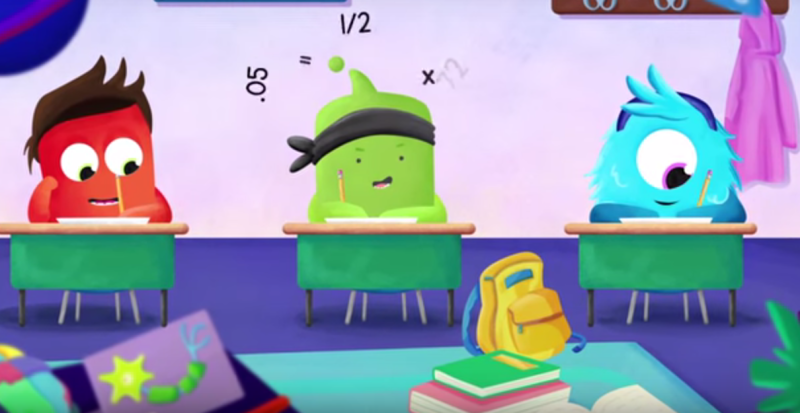“The scope of this study goes beyond just these videos. We really are going to try to understand what teachers are doing on a day to day basis,” Paunesku said. He’s excited to find out from teachers what kind of growth mindset messages they are already giving students both explicitly and implicitly through their teaching practices. Understanding how teachers are currently working and determining which strategies already work, as well as those that don’t, is big goal of this collaboration.
“We’ll learn both what they’re already doing and how what they’re doing changes as a result of using the videos,” Paunesku said. And, because ClassDojo can track engagement with their videos and tools, the PERTS researchers can gather new insights into how the growth mindset message changes student engagement levels. Conversely, Paunesku also wants to know if the videos don’t work.
“To the extent the videos fall short on some things, that’s really important information for making more resources in the future,” Paunesku said. ClassDojo has made five 2-to-3-minute videos that will be released over five weeks and are available for free to the public. They've also put together discussion guides to help teachers jumpstart classroom discussion. The five videos build upon one another in a sequence:
Video 1: A secret about the brain
Video 2: The magic of mistakes
Video 3: The power of "yet"
Video 4: The mysterious world of neurons
Video 5: Little by little
“We have this belief that teachers and parents and students are this bottom up force in education,” said Liam Don, co-founder and chief product officer of ClassDojo. “So to actually bring real evidence-based research is a real opportunity.”
Don is proud that his company has always solicited teacher input and incorporated that feedback into the company’s tools. ClassDojo’s initial focus on behavior management through positive reinforcement came from teachers. And the expansion to become a closed circuit communication tool – basically a window into the classroom for parents – also came from educators.
“I use it to recognize and acknowledge positive behavior in the classroom,” said Jennifer Ellison, who teaches computer classes to all grades at Phillips Elementary in Napa, California. “But I also use it for community building.” Her students often recognize one another for demonstrating mastery over new skills or for behavior that helps another student. That in turn helps foster a positive classroom culture.
The teachers at Ellison’s school have read "Mindset," by Carol Dweck, and have already been trying to incorporate growth mindset messages into their teaching. But Ellison is excited about the ClassDojo videos after seeing the pilot. “We’ve already been talking to our students about it, but the video is really cute and they love the little monster on Dojo,” she said.
Ellison often uses her own experiences as a learner when she talks about growth mindset with students. She remembers that her older sister always learned new math problems on the first try, whereas she had to struggle to understand new concepts. Growing up, she tells students, she believed that meant her sister was smart and she was not.
That feeling of inadequacy resonates with many students. But then she explains that everybody’s brains are capable of growing and changing when they are confronted with new ideas. Her struggles to understand math didn’t mean she was any less smart, she just had to try more strategies and work harder to understand, growing her brain in the process. She intends to continue that personal approach, but thinks an engaging, short video is a great way to kick off the conversation.
“I think the videos head in the right direction,” Ellison said. “Certainly the idea that intelligence is not fixed is important for kids to hear over and over again.” She is also excited at the potential for the growth mindset conversation to travel back to students’ homes and become a larger part of the school community.
Ellison says ClassDojo has increased parent engagement with her classes. The tool offers translations in 40 languages -- a huge help in her school where many students come from homes where English is not the first language -- and because much of what teachers post is visual, parents can finally see what goes on during school hours. ClassDojo only has anecdotal evidence of this increased engagement from teachers’ stories and social media, but they do know that 8,000 messages are exchanged every minute between teachers and parents on the platform.
ClassDojo executives have already released a pilot video to teachers and got good feedback, so they believe the video series will be well received. “I think there’s a lot of pent up enthusiasm for this idea,” Don said. Many teachers have heard of growth mindset, but aren’t quite sure how to work it into their lessons. Don believes the partnership between ClassDojo and PERTS will reach a huge number of teachers and help them begin these conversations.
“Teachers are willing to put in work to make a good idea work in their classroom,” Don said. “We’ve seen that over and over when we’ve released things in the past.”


